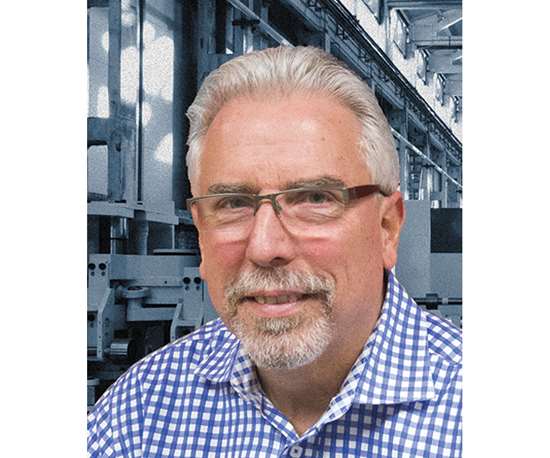Expand Your Focus from Products to Service
Why shouldn’t we focus on the products that we make instead of the products we sell? After all, that’s what our customers buy from us, right?
Your purpose is more than making products, so why isn’t your focus?
I think that as managers we are confused between what we sell, what we think our customers are buying and what our purpose is.
Featured Content
Why shouldn’t we focus on the products that we make instead of the products we sell? After all, that’s what our customers buy from us, right? If the customer isn’t buying products from us, what exactly are they buying? Making products is what we do, whether large or small lots, high or low complexity, or from cam automatics or multi-axis CNC machines.
Making high precision components for our customers using a range of technologies is what we do, but it is actually just a portion of what we do, and just a portion of the reason why our customers buy from us. We are more than economic organizations. We are community organizations as well (though in industry, they like to say “supply chain,” rather than community). But we have a role to play in our community—our community of customers, suppliers and employees.
It is impossible to argue that our purpose doesn’t somehow involve products. We ship products and get paid for them, but that is not the end of the story. Products can be purchased from a number of suppliers, locally as well as globally. U.S. Census says there are approximately 3,682 precision machining shops in the U.S. alone. A recent study we did on a sample of PMPA shops indicates that PMPA active and associate shops make up about 6.4 percent of industry, and yet we produce almost 15 percent of the industry’s shipments. Clearly, there is something more going on than just making great parts.
Getting Back to Community
It is my belief that our shops provide a higher value than just the utility of our parts. Our shops play a key role in their communities of suppliers, customers and employees. That key role is to be a provider of values to our community beyond the mere function of our products. I believe our customers buy products from us because of our service.
Service is What Customers Really Want
Service is what our customers really want and why they purchase their parts from us. Their experience with our service gives them confidence on our promises and deliverables. In every transaction there is risk because of a number of factors both known and unknown. Our customers choose us because they are confident we will serve them and meet their needs.
Customers do not purchase from us based on low price if we cannot ship the products they need in time for them to use. The price they will pay will be the price that meets their requirement to be served the parts when they need them. It is our service that decides their choice of source, not price, if the need for parts is immediate.
While the business press loves to talk about supply chains, what they are really talking about are the communities of people. A supply chain is a community of people that wants to get the job done and serve the community with newer and better technologies. We all take satisfaction at our role in making the world a better place because of what it is that we do, and of course, we want to deal with people that share our values. An attitude of service shows to our commercial partners in production that we too are made of the right stuff, and our organization and products will meet their needs because we made the effort to understand and deliver on their needs.
Service is not something that just happens. Service, in the customer’s mind, is built by shared experiences of commitments made and honored. Service is built on experience. That experience is built on a foundation of demonstrated expertise, an understanding of the customer’s needs, both spoken and unspoken. Service is a demonstration of our expertise. Our ability to serve a customer’s needs grows as the customer gains confidence in our abilities to serve, not only by experience and expertise. Confidence grows by meeting an unforeseen challenge to the satisfaction of the customer, despite the circumstances. Service grows customer confidence in our ability to continue to serve and add value.
Service is human connection. In today’s world of instantaneous Google searches, robo-traders and mobile apps, it does not surprise me to see how many of us still hold out for a human connection to make sense of the facts that these tools display for us, or that we want more than a portfolio designed to meet our needs just by having filled out a handful of blanks. What is the success rate of finding the perfect “whatever” on the “app for that?”
Product and process expertise is critical to precision manufacturers making highly engineered components for a range of technologies designed to improve quality of life. But I think it is important for all of us to realize that just as important is our ability to serve our customers’ needs, which has little to do with actual production. It has everything to do with listening, caring, understanding, advocating, acting and making a difference.
When the next order comes in, it is easy to think that the parts were good, so of course you get the reorder. But what you may not know is that the reorder came, not just because your parts met print, but rather because someone on your team made a real difference for someone at your customer when they needed it. I’m not asking you to take your focus off of making great parts. I’m asking you to expand your focus to service as well. There is certainly room enough under the lens to focus on both great products and great service to sustain your value to your customers, and your continued existence as a business.
Great parts and lousy service are not a winning combination.







